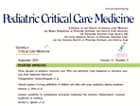Family and Patient Perspectives of Prolonged ICU Stays
Although prolonged hospitalizations might strengthen clinician-family communication through repeated interactions, this is often not the case. Nelson et al[18] showed that families enduring longer hospitalizations are less informed than those experiencing shorter hospitalizations; nearly half of such families lack information in domains essential to serious decision making and feel least informed about long-term functional prognosis and alternatives to aggressive treatment. When families are uncertain about achievable goals of care, they may overestimate the chance for recovery,[7] and without clear signals of the patient's transition from acute to CCI, families may misinterpret the consideration of life-prolonging therapies such as tracheostomy as a step toward recovery.[20–22]
Families in NICUs and PICUs also struggle to engage in longitudinal decision making. Early in an ICU stay, parents may agree to intensive interventions without hesitation; they may not even perceive this as making a "decision" but simply as doing what is necessary.[23,24] Without ongoing discussion, clinicians may treat a family's initial decisions as implicit "buy-in" to any further life-prolonging measures.[25,26] This informal contract can inadvertently deter ongoing evaluation of achievable goals of care. Parents in the ICU commonly underestimate their child's illness severity and its implications for long-term prognosis.[27,28] As the hospitalization lengthens, families often need help incorporating their child's prognosis and expected quality of life into treatment choices.[29–31] Family readiness to hear this "big picture" information varies, but some families feel betrayed when prognostic information is delayed.[32]
Successful clinician-family communication during prolonged ICU stays only partly depends on clear information exchange; trusting relationships are equally important. Families prefer continuity—they want clinicians to follow their child over time[33–35] and to be emotionally engaged.[36] Families want clinicians to welcome discussion about how religious or spiritual beliefs might play a part in parents' choices for their child.[24,31,32,37,38] Finally, parents appreciate when clinicians respect their wisdom as parents, offering them some control in the chaotic ICU environment.[36] This is particularly true of the families of children with CCI who typically play a crucial role in daily care for their child.[39]
Few studies have examined the child's perspective of CCI or prolonged hospitalizations. During hospitalizations, pediatric patients may spend long periods away from family and may be anxious about the hospital environment.[40,41] Older children may wish to engage in serious medical decisions[42] but not know how to communicate this to their family.
Given what families say helps them engage in serious decision making for their children with CCI, how do traditional models of ICU processes and ICU physician training facilitate, or complicate, this care?
Pediatr Crit Care Med. 2016;17(8):743-752. © 2016 Lippincott Williams & Wilkins





